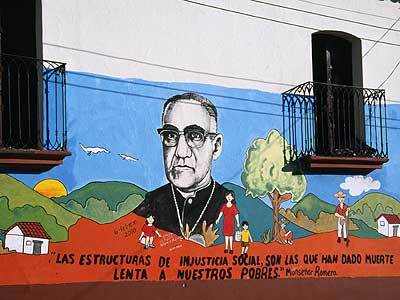The Cost & Reward of Discipleship (AQA GCSE Religious Studies A): Revision Note
Exam code: 8062
34 He called the crowd with his disciples, and said to them, “If any want to become my followers, let them deny themselves and take up their cross and follow me. 35 For those who want to save their life will lose it, and those who lose their life for my sake, and for the sake of the gospel, will save it. 36 For what will it profit them to gain the whole world and forfeit their life? 37 Indeed, what can they give in return for their life? 38 Those who are ashamed of me and of my words in this adulterous and sinful generation, of them the Son of Man will also be ashamed when he comes in the glory of his Father with the holy angels.” (Mark 8:34–38)
The cost of discipleship
Jesus explained what it takes to be a true disciple
He laid out the expectations that he has for his followers
Jesus stated that being a disciple would come at a cost
His followers should be prepared to:
Deny themselves, meaning they would have to put the needs of others before their own needs
Take up their cross, meaning they must be prepared to accept suffering and death for their faith, as many did
Follow Jesus, which meant accepting Jesus as Lord and, therefore, accepting this lifestyle
Jesus taught that while some people fear losing their life by declaring their faith, they risk losing eternal life
Some will gain the wealth of the world but lose eternal life
Some are ashamed of their faith, and Jesus will be ashamed of them when he comes
For Christians today, there are still many challenges and costs involved with being a true disciple
Many Christians have to live in a very different way by avoiding the challenges and temptations of modern life, such as putting too much emphasis on material possessions
Archbishop Oscar Romero and the cost of discipleship
Archbishop Oscar Romero is one example of a modern Christian who suffered the costs of being a disciple
Romero was Archbishop of San Salvador during a time of great conflict and unrest in El Salvador in the 1970s
Romero used his platform to speak out against injustice, inequality and the violence the government was inflicting on its own people
He would read out lists of names of the “disappeared” people during Mass and preach about the need for peace and justice
In 1980, Romero was shot and killed during Mass while he was holding up the blessed bread
Many people think he was assassinated because of his outspoken views and criticism of the government
Romero is a role model for Christians who seek to defend their values and speak out against injustice in all its forms today

Attribution:
Romero by Marvin Solis e Causis Sanctorum is licensed under CC BY 3.0
28 Peter began to say to him, “Look, we have left everything and followed you.” 29 Jesus said, “Truly I tell you, there is no one who has left house or brothers or sisters or mother or father or children or fields, for my sake and for the sake of the good news, 30 who will not receive a hundredfold now in this age—houses, brothers and sisters, mothers and children, and fields, with persecutions—and in the age to come eternal life. 31 But many who are first will be last, and the last will be first.” (Mark 10:28–31)
The rewards of discipleship
The disciples had just seen the rich young man go away sad because he could not do what they had done in giving up everything to follow Jesus
Peter was questioning Jesus, probably to get assurance that they had done the right thing in sacrificing so much to become disciples
Jesus’s response was to reassure the disciples that the reward for their trials in this life would be membership in the Kingdom of God, both in life and after death
The riches Jesus spoke of were not material blessings but spiritual rewards
Jesus’s famous phrase “many who are first will be last, and the last will be first” means that Christianity was bringing about a transformation in priorities
Jesus’s teachings would have encouraged his followers, many of whom came from humble backgrounds. The same was true of many members of the early Christian Church
Worked Example
What did Jesus mean when he told his followers to “take up their cross”?
[1 mark]
A. They must be ready to face suffering and even death for their faith.
B. They should always carry a wooden cross as a sign of discipleship.
C. They were required to fast every week and give up possessions.
D. They would avoid persecution if they trusted in God fully.
Answer:
A. They must be ready to face suffering and even death for their faith.
“Take up your cross” was a warning that discipleship could mean sacrifice, even death.
Examiner Tips and Tricks
When a question asks about the cost of discipleship, don’t just repeat Jesus’s words about taking up the cross — show the cost in real life. In Mark’s Gospel, the disciples gave up their families and jobs and even risked death. You can strengthen your answer by adding modern examples such as Archbishop Oscar Romero, who was killed for speaking out against injustice. You may have studied other examples, such as Dietrich Bonhoeffer, during your course.
Using both Gospel stories and modern role models shows examiners you understand discipleship as a living challenge, not just a historical idea

Unlock more, it's free!
Was this revision note helpful?
